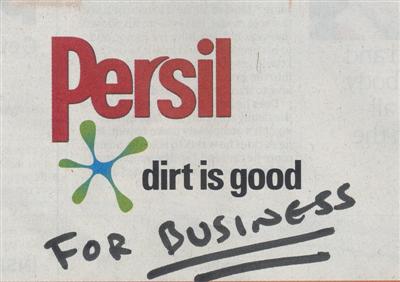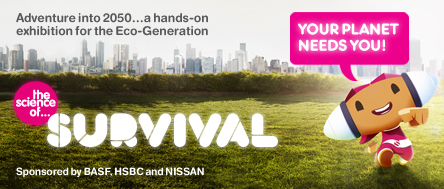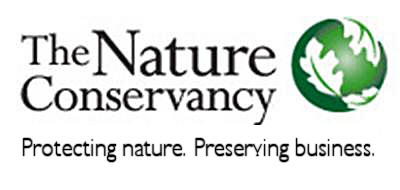School Supermarket Vouchers Special: Part 2 – Greenwashing Children
Posted by keith on 15th October 2008
In the first part of this series I explained how supermarkets have infiltrated schools with their clever voucher schemes, and the various tricks that the business use to ensure they are as successful as possible. In this part I will highlight two attempts at greenwashing that have been accepted as fact by school leaders, teachers, parents and children…
Greenwashing stinks! That you already know. What isn’t always clear, though, is when greenwashing is actually taking place: you can use this guide to help with its identification, but when you have something as insidious as a school voucher scheme being accepted wholeheartedly by everyone attached to thousands of schools, then the whole greenwashing concept starts to seem a little hazy.
It’s not. There is nothing hazy about the following acts of greenwashing except the minds of the people who have allowed it to be part of the “educational” process…
Morrisons’ Let’s Grow
If you read my entries on The Sietch and The Earth Blog, you will know that I am a huge supporter of many types of self-sufficiency, which includes — to a very large extent — growing your own food. So, anything that gets children interested in the potential of home growing as a source of food is obviously a good thing: it removes the carbon footprint of “food miles”; it encourages children to take an interest in where their food comes from; it can cause a dramatic shift in diet from processed, high-energy foods to natural, healthy ones; most importantly it can help reconnect children to the very landbase which we depend upon for our survival.
So why are Morrisons, the fourth largest supermarket chain in the UK, trying to bring self-sufficiency to schools around the country — have they discovered a moral bone within their, well-publicised, history of environmental stonewalling?
Let’s Grow aims to help schools capture the imagination of the nation’s kids to show them that food doesn’t just come from supermarkets. By collecting Let’s Grow vouchers you’ll be enabling kids to get their hands dirty for good reason by giving them the opportunity to grow their own food in the school grounds.
All very worthy, and on message. Food doesn’t just come from supermarkets: very true, and seemingly in opposition to the raison d’etre of a supermarket. But take a closer look at the “Fact Sheet For Teachers” and things start to become clearer.
The key points are easy to identify:
1) There is, of course, the required grocery spend for vouchers — £10 for one, in this case — so it is clear from the off that this isn’t a social enterprise on behalf of the business.
2) On registration, the school are supplied with “free” teaching resources. The guides are pretty good: they cover all the basics about preparation, composting, growing, harvesting and many other things. Most of the guides are branded with the Morrisons logo.
3) Schools are provided with posters and banners, which they can display all round the school and, very importantly, on the school boundaries, so that passers-by can see what the school, and Morrisons, are doing.
As you will see in Part Three, the voucher purchase alone makes this “green” scheme very good for business, as does the branding: but its the nature of the business itself, a huge business with a turnover of £8bn in the last financial year, that makes this so droll. Morrisons, like all large supermarkets, import the vast majority of their produce from overseas and, unlike some other chains, push their “budget” produce very heavily, at the expense of local and organic goods, which are routinely sidelined. This is the profit motive writ large. The benefits of the scheme to the supermarket are primarily at the checkout, but by wrapping the scheme in something so obviously counter to the supermarket culture, they are able to appear “outside the system”.
Morrisons know, full well, that the vast majority of children and adults who get involved in the scheme will become slightly more loyal to the Morrisons brand as a result of the socially beneficial appearance of the scheme; a small minority may well decide they don’t need supermarkets and will strive to grow their own food and buy local produce, but they are the exception. Morrisons have done a great job greenwashing their brand.
Asda Go Green For Schools
As the second largest supermarket chain in the UK, and part of the largest corporation on Earth, Asda (or rather, AsdaWalmart) are well placed to move into schools. Starting as a regional store group, they opened up their market by pushing their “mumsy” appeal, exemplified by the widely recognised Asda “bottom pat” (the bottoms in question being those of mothers who had spare change in their back pockets). Once they had captured the family market, Walmart took over (literally) and turned a medioum sized chain into a corporate behemoth.
It is this corporate behemoth that is now urging schools to “Go Green”. Bear in mind that Asda’s carbon emissions for 2007 were…oh dear! I don’t seem to be able to find them anywhere on the internet. In fact I spent over 20 minutes on the phone talking to the press office, the customer service office (in South Africa, bizarrely) and head office, and no one could tell me how much carbon Asda release. This is the single most important measure of environmental performance and it’s missing.
Here’s the entire set of phone calls for you to enjoy >>> Asda Can’t Tell Me Their Carbon Emissions
Looking at the Go Green For Schools website, it’s immediately clear that there is very little on offer. The scheme ran during the first half of 2008, and during that time teachers could download worksheets about various aspects of the environment (I can’t find any on the site) and also — and here’s the clincher — collect vouchers to save up for “eco-equipment”. The environmental scope of the scheme is limited to Reduce-Reuse-Recycle (which seems to skip the most important “reduce” bit entirely), plastic bags and packaging. The “eco-equipment” is pretty limited, and includes a set of 6 “Go Green For Schools” branded posters for “only” 300 vouchers.
Now here’s the clever bit: Asda don’t ask you to spend money for vouchers, they give you one every time you don’t ask for a carrier bag and use one of your own instead. This is another bit of classic greenwash: as I reported a while ago, plastic bags are just a bit of eco fluff that distract from the real environmental problems companies cause. But because people think they are being environmentally friendly, then they associate the scheme with genuine social concern — that all important feel-good factor that encourages loyalty. And you can only get a voucher if you have a bag’s worth of goods; to get three vouchers you have to buy three bag’s worth of goods.
It seems that schools have fallen for this scheme lock, stock and barrel:
“Many many thanks, what a wonderful supermarket you are! What a fantastic surprise we had, when we received all the lovely goodies from you.”
Dawn Sparrows
Pound Park Nursery & Early Years Centre, Charlton, London
“I am writing with a huge THANK YOU! We received your kind donation this morning of numerous items and we are absolutely delighted. The children are excited and enthused and eager to set up the mini green houses and can crushers…..! We really do appreciate the contribution to our school and the Eco Club. You have got our club off the ground! Thank you once again.”
Lucy Garside
Woodley Primary School, Stockport
“Thank you so much for the environmental prizes. We really work hard here to help our children find out more about the environment and how to look after it. The kits you sent will really help us do this.”
Lynne Cannon – Head Teacher
Saxon Wood, Hants
So are Asda greenwashing? Well, considering they do not publish any useful environmental information publically, they are (even more than Morrisons) a massive importer and retailer of consumer goods and exotic produce, and they are part of the largest global corporation in history: yes, that’s Asda Greenwashing at its best.
Next time I will explain who the real winners and losers are in the supermarket voucher schemes. even after what I have said, you might well be pretty shocked at the results.
Posted in Corporate Hypocrisy, Promotions, Sponsorship | 1 Comment »












 Buz
Buz


